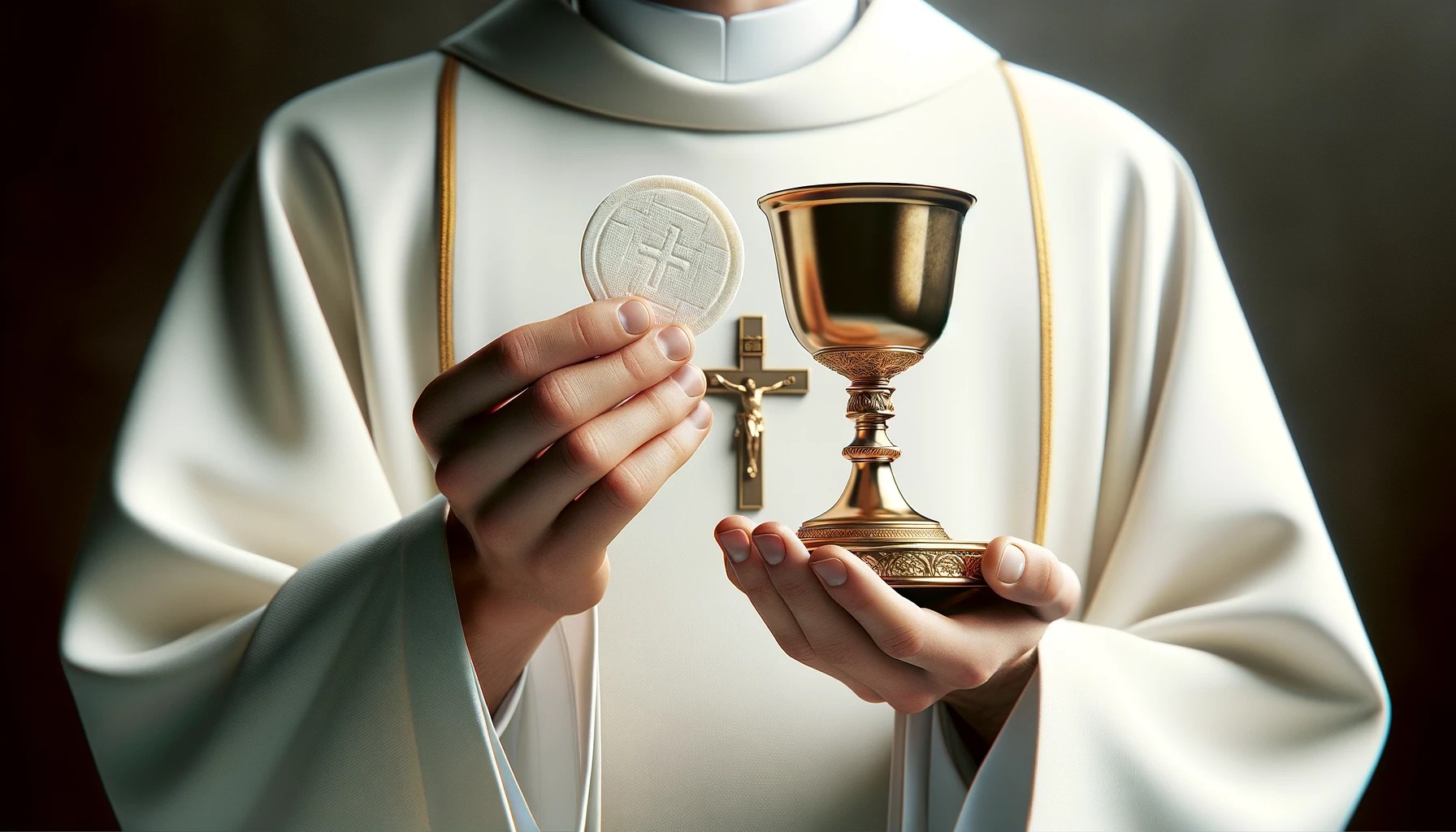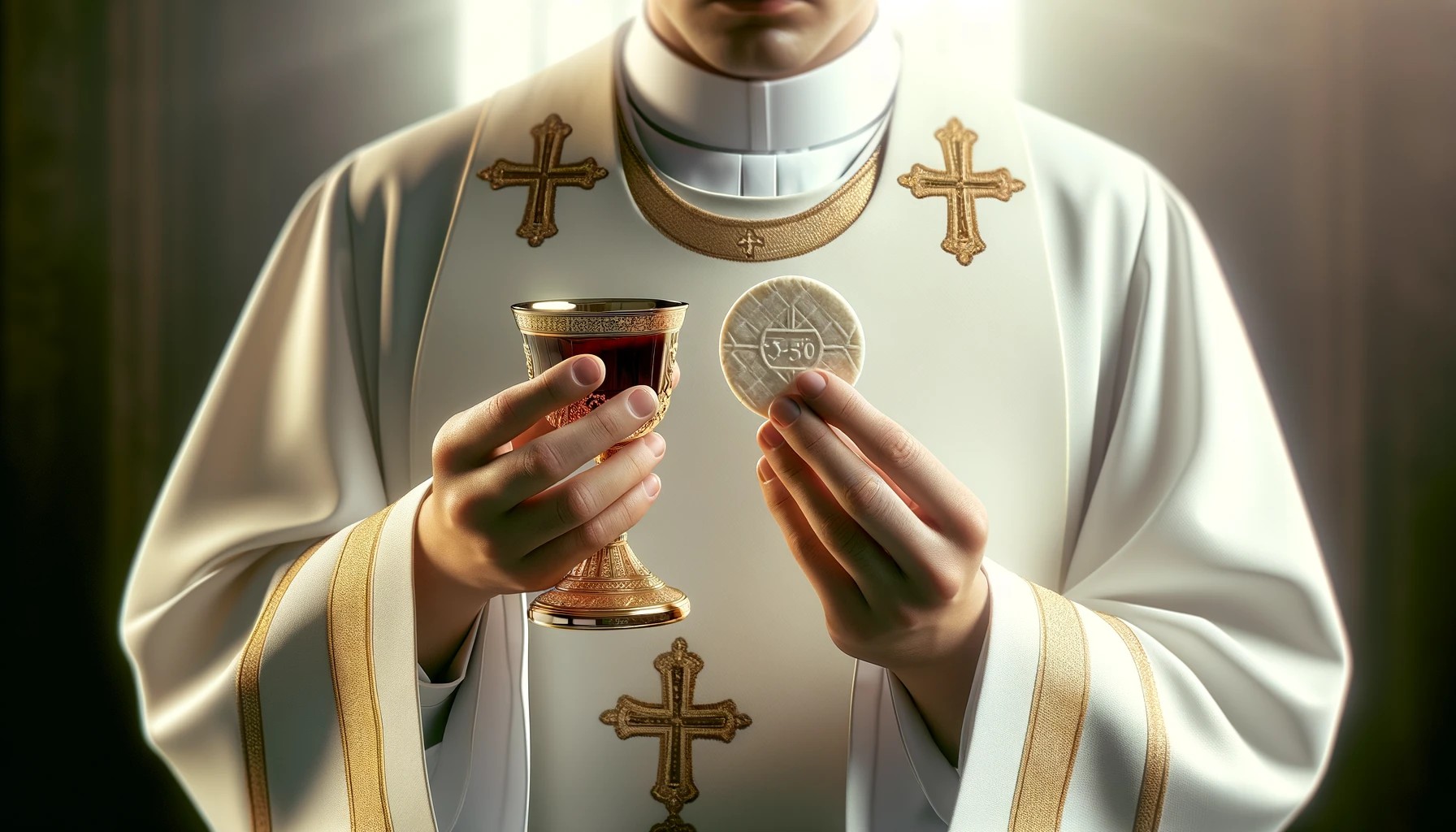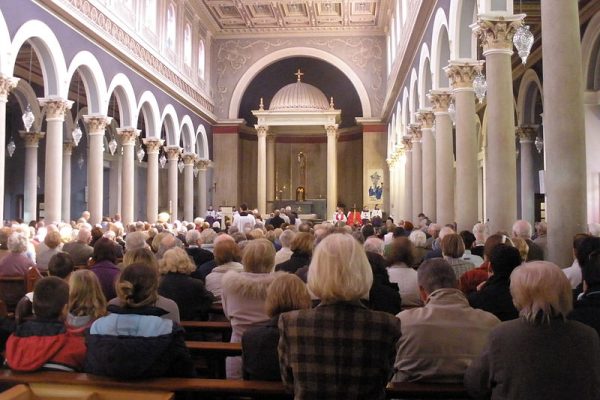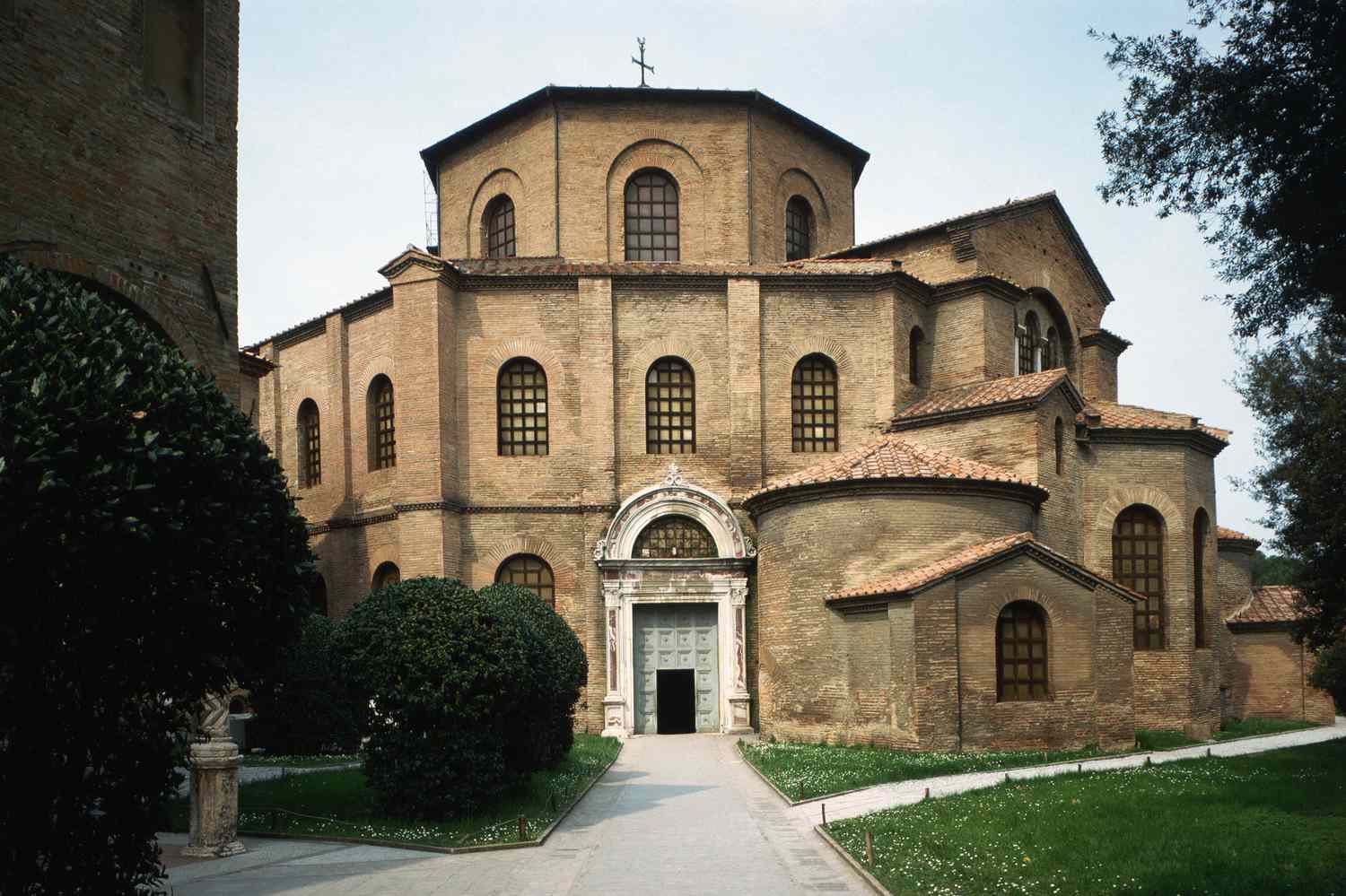Home>Theology and Spirituality>What Happens During The Communion Rite


Theology and Spirituality
What Happens During The Communion Rite
Published: February 25, 2024
Jason DeRose, Managing Editor at Christian.net, uses his expertise in religion and journalism to deepen understanding of faith's societal impacts. His editorial leadership, coupled with a strong academic background, enriches the platform’s diverse content, earning him recognition in both journalism and religious circles.
Discover the significance of the Communion Rite in theology and spirituality. Explore the sacred rituals and traditions during this solemn ceremony.
(Many of the links in this article redirect to a specific reviewed product. Your purchase of these products through affiliate links helps to generate commission for Christian.net, at no extra cost. Learn more)
Table of Contents
Introduction
The Communion Rite is a sacred and integral part of Christian worship, particularly in the Catholic and Orthodox traditions. It is a profound and symbolic ritual that holds deep spiritual significance for believers. The act of receiving the Eucharist, also known as Holy Communion, is a central sacrament in Christianity, representing the mystical union with the body and blood of Jesus Christ.
The Communion Rite is a time-honored tradition that dates back to the Last Supper, where Jesus shared bread and wine with his disciples, instructing them to partake in remembrance of him. This solemn act has been faithfully observed by Christians for centuries, serving as a tangible expression of their faith and devotion.
As we delve into the intricacies of the Communion Rite, we will explore its profound meaning, the spiritual preparation required for participation, the sacred elements of the ritual, and the reverent manner in which the Eucharist is received. Through this exploration, we will gain a deeper understanding of the significance of Communion and its enduring relevance in the lives of believers.
The Communion Rite is a timeless tradition that transcends cultural and geographical boundaries, uniting Christians in a shared experience of spiritual nourishment and communion with the divine. It is a sacred practice that continues to inspire reverence, reflection, and a profound sense of connection to the foundational tenets of the Christian faith.
Read more: What Happens During A First Communion
The Meaning of Communion
At its core, Communion, also known as the Eucharist, embodies a profound spiritual significance for Christians. It symbolizes the central tenets of the Christian faith, encapsulating the sacrificial love of Jesus Christ and the spiritual nourishment derived from partaking in the body and blood of Christ. This sacred ritual serves as a tangible expression of believers' unity with Christ and with one another, fostering a deep sense of spiritual communion within the faith community.
The act of Communion traces its origins to the Last Supper, a pivotal event in Christian theology. During this poignant gathering, Jesus shared bread and wine with his disciples, imparting to them the symbolic representation of his body and blood. He urged them to partake in remembrance of him, thereby establishing a timeless tradition that would endure through the ages.
For Christians, Communion represents a profound act of remembrance and reverence. It serves as a commemoration of Jesus' ultimate sacrifice on the cross, where his body was broken and his blood was shed for the redemption of humanity. Through the partaking of the Eucharistic elements, believers symbolically reaffirm their faith in the redemptive power of Christ's sacrifice, acknowledging the transformative impact of his love and grace in their lives.
Furthermore, Communion embodies the concept of spiritual nourishment and sustenance. It is believed to provide believers with a profound sense of spiritual sustenance, strengthening their faith and fortifying their connection to the divine. The act of receiving the Eucharist is viewed as a sacred encounter with the living presence of Christ, fostering a deep sense of spiritual nourishment and renewal within the hearts of believers.
In essence, Communion serves as a powerful symbol of unity, remembrance, and spiritual nourishment within the Christian faith. It encapsulates the timeless truths of Christ's sacrificial love and the transformative power of his redemptive grace. As believers partake in this sacred ritual, they are reminded of their profound connection to the foundational principles of their faith and the enduring legacy of Christ's love for humanity.
Preparation for Communion
Preparation for Communion is a deeply significant aspect of the Communion Rite, underscoring the reverence and spiritual readiness required to partake in this sacred sacrament. For Christians, the act of preparing for Communion extends beyond the physical realm, encompassing a profound spiritual introspection and a heart-focused readiness to receive the Eucharist.
Central to the preparation for Communion is the cultivation of a spirit of repentance and reconciliation. Believers are encouraged to engage in sincere self-reflection, examining their thoughts, actions, and intentions in light of their faith. This introspective process allows individuals to identify areas in their lives that may be incongruent with the teachings of Christ, prompting a genuine desire for repentance and spiritual renewal. Through the sacrament of reconciliation, also known as confession, believers seek absolution for their transgressions, thereby preparing their hearts to receive the Eucharist with a renewed sense of spiritual purity and reconciliation with God.
In addition to repentance and reconciliation, spiritual preparation for Communion involves a deliberate focus on prayer and contemplation. Christians are encouraged to engage in fervent prayer, seeking spiritual guidance, strength, and a deeper connection with the divine. Through prayer, believers express their gratitude for the redemptive sacrifice of Christ and seek a profound communion with the living presence of Jesus in the Eucharist. This intentional focus on prayer fosters a sense of spiritual readiness and receptivity, allowing individuals to approach the Communion Rite with a heart attuned to the sacred significance of the Eucharist.
Furthermore, the act of preparation for Communion extends to a conscientious examination of one's faith and beliefs. Believers are encouraged to reflect on the profound meaning of the Eucharist, contemplating the transformative impact of Christ's sacrifice and the spiritual nourishment derived from partaking in the body and blood of Christ. This reflective process serves to deepen believers' understanding of the sacred nature of Communion, fostering a sense of reverence and awe for the sacramental encounter with the living presence of Christ.
Ultimately, the preparation for Communion is a multifaceted journey that encompasses repentance, reconciliation, prayer, and contemplation. It is a deeply personal and spiritual endeavor that underscores the profound significance of the Communion Rite in the lives of believers, preparing their hearts and minds to partake in this sacred sacrament with reverence, humility, and a profound sense of spiritual readiness.
The Communion Rite
The Communion Rite, a sacred and revered tradition within Christian worship, represents a pivotal moment of spiritual significance and communal unity. As the culmination of the Eucharistic celebration, the Communion Rite unfolds with a profound sense of reverence and solemnity, underscoring the transformative encounter with the living presence of Christ in the Eucharist.
The Communion Rite typically unfolds within the context of the Eucharistic liturgy, following the proclamation of the Word of God and the recitation of the Nicene Creed. This transition marks a pivotal juncture in the worship service, signaling the imminent participation in the sacred act of Communion. The Communion Rite is characterized by a series of deeply symbolic and reverent actions, each imbued with profound spiritual significance and theological depth.
Central to the Communion Rite is the preparation of the Eucharistic elements, namely the bread and wine, which are consecrated by the celebrant through the invocation of the Holy Spirit. This transformative act, known as the epiclesis, is a solemn invocation of the divine presence, sanctifying the bread and wine and effecting their mystical transformation into the body and blood of Christ. This sacred moment underscores the belief in the real presence of Christ in the Eucharist, signifying a profound encounter with the divine within the Communion Rite.
Following the consecration of the Eucharistic elements, the celebrant elevates the consecrated host and chalice, presenting them to the congregation as a tangible representation of Christ's sacrificial love and redemptive grace. This gesture serves as a poignant reminder of the central tenets of the Christian faith, inviting believers to partake in the mystical union with the body and blood of Christ through the reception of the Eucharist.
As the congregation approaches the altar to receive the Eucharist, a spirit of reverence and awe permeates the sacred space, underscoring the profound significance of this sacramental encounter. Believers, with hearts uplifted in faith and devotion, receive the consecrated host and partake in the precious blood of Christ, symbolizing their spiritual communion with the living presence of Jesus in the Eucharist.
The Communion Rite culminates in a collective expression of faith and unity, as believers partake in the Eucharist, reaffirming their shared identity as members of the body of Christ. This sacred act of Communion fosters a deep sense of spiritual nourishment and communal solidarity, uniting believers in a profound expression of their faith and devotion to the transformative power of Christ's redemptive love.
In essence, the Communion Rite stands as a testament to the enduring significance of the Eucharist within Christian worship, embodying the timeless truths of Christ's sacrificial love and the spiritual nourishment derived from partaking in the body and blood of Christ. It is a sacred ritual that continues to inspire reverence, reflection, and a profound sense of connection to the foundational tenets of the Christian faith.
Receiving the Eucharist
The act of receiving the Eucharist, the sacred body and blood of Christ, is a deeply reverent and transformative experience within the Communion Rite. As believers approach the altar to partake in this sacred sacrament, they do so with hearts uplifted in faith and a profound sense of spiritual readiness. The reception of the Eucharist represents a profound encounter with the living presence of Christ, fostering a deep sense of spiritual nourishment and communion with the divine.
Upon approaching the altar, believers typically form a line, guided by a spirit of reverence and solemnity. As they draw near to receive the Eucharist, a sense of anticipation and awe permeates the sacred space, underscoring the profound significance of this sacramental encounter. Each individual, with hands folded in prayer or extended to receive the consecrated host, approaches the celebrant or extraordinary minister of Holy Communion with a heart attuned to the sacred nature of the Eucharist.
The communicant, upon reaching the celebrant or minister, reverently extends their hands to receive the consecrated host, the body of Christ. With profound reverence and devotion, they consume the Eucharist, partaking in the mystical union with the body of Christ. This act of reception symbolizes the believer's spiritual communion with the living presence of Jesus in the Eucharist, fostering a profound sense of unity and spiritual nourishment within the faith community.
Similarly, the reception of the precious blood of Christ, offered in the form of consecrated wine, embodies a deeply symbolic and reverent encounter with the redemptive grace of Christ. Believers, guided by a spirit of reverence and humility, approach the chalice with a profound sense of awe and gratitude. As they receive the precious blood of Christ, they partake in the transformative power of Christ's sacrificial love, reaffirming their spiritual communion with the living presence of Jesus in the Eucharist.
The act of receiving the Eucharist is a sacred and deeply personal encounter with the divine, fostering a profound sense of spiritual nourishment, unity, and communion within the faith community. It serves as a tangible expression of believers' faith and devotion, encapsulating the timeless truths of Christ's sacrificial love and the transformative power of his redemptive grace. As believers partake in this sacred ritual, they are reminded of their profound connection to the foundational principles of their faith and the enduring legacy of Christ's love for humanity.
Read more: What Is Communion Rite
Conclusion
The Communion Rite stands as a timeless testament to the enduring significance of the Eucharist within Christian worship. It embodies the profound spiritual nourishment, unity, and communion experienced by believers as they partake in the sacred body and blood of Christ. The act of Communion serves as a tangible expression of believers' faith and devotion, encapsulating the timeless truths of Christ's sacrificial love and the transformative power of his redemptive grace.
As believers engage in the Communion Rite, they are invited into a profound encounter with the living presence of Christ, fostering a deep sense of spiritual nourishment and communion with the divine. The preparation for Communion, characterized by repentance, reconciliation, prayer, and contemplation, underscores the reverence and spiritual readiness required to partake in this sacred sacrament. It serves as a deeply personal and spiritual endeavor that prepares the hearts and minds of believers to approach the Communion Rite with reverence, humility, and a profound sense of spiritual readiness.
The Communion Rite unfolds with a series of deeply symbolic and reverent actions, each imbued with profound spiritual significance and theological depth. The consecration of the Eucharistic elements, the elevation of the consecrated host and chalice, and the reception of the Eucharist collectively embody the sacred encounter with the living presence of Christ, fostering a deep sense of spiritual nourishment and communal solidarity within the faith community.
Ultimately, the Communion Rite serves as a powerful symbol of unity, remembrance, and spiritual nourishment within the Christian faith. It encapsulates the sacrificial love of Jesus Christ and the spiritual nourishment derived from partaking in the body and blood of Christ. As believers partake in this sacred ritual, they are reminded of their profound connection to the foundational principles of their faith and the enduring legacy of Christ's love for humanity.
In essence, the Communion Rite continues to inspire reverence, reflection, and a profound sense of connection to the foundational tenets of the Christian faith. It remains a sacred practice that unites believers in a shared experience of spiritual nourishment and communion with the divine, transcending cultural and geographical boundaries to foster a deep sense of unity within the global Christian community.














